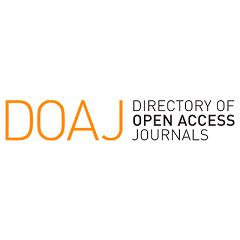EFFECT OF THE COVID-19 PANDEMIC ON CONGENITAL SYPHILIS NOTIFICATIONS IN BRAZIL
effect of the covid-19 pandemic on congenital syphilis notifications in Brazil
DOI:
https://doi.org/10.17695/rcsne.vol23.n1.p07-15Keywords:
COVID-19, Cuidado pré-natal, Infecções por Treponema, Sífilis Congênita, Sistema Único de SaúdeAbstract
Syphilis is considered a Sexually Transmitted Infection and systemic infectious-contagious disease caused by the anaerobic bacterium Treponema pallidum, subspecies pallidum. With the advent of the COVID-19 pandemic, caused by the Severe Acute Respiratory Syndrome Coronavirus 2, an impact was observed on the performance of prenatal consultations and exams. In this context, the present study aimed to investigate the effect of the COVID-19 pandemic on congenital syphilis notifications in Brazil. This is a descriptive-exploratory study with data collection conducted between March and June 2023. The information regarding congenital syphilis notifications that occurred between 2018 and 2021 was extracted from the Notifiable Diseases Information System and made available on the platform of the Department of Informatics of the Sistema Único de Saúde. The data were grouped into two biennia: 2018-2019 (pre-pandemic period) and 2020-2021 (pandemic period). Descriptive statistics and percentage variation were used for data analysis. The results showed that between 2018 and 2021, 84,698 cases of congenital syphilis were reported in Brazil, with a higher number of cases in the pre-pandemic period (n= 51,174; 60.4%). There was a downward trend in notifications in Brazil during the health crisis, with a negative percentage variation of 34.4%, and with the Central-West (percentage variation = -5.2%) and North (percentage variation = -4.6%) regions standing out. The sociodemographic and healthcare characteristics were similar between the pre-pandemic and pandemic periods. The study concludes that there was a decrease in reported cases of congenital syphilis, suggesting a potential underreporting in the different macro-regions of Brazil, possibly related to low adherence to prenatal care by pregnant women during the COVID-19 pandemic.
Downloads
Published
How to Cite
Issue
Section
License
Copyright (c) 2025 Revista de Ciências da Saúde Nova Esperança

This work is licensed under a Creative Commons Attribution-NonCommercial 4.0 International License.
-
Declaro minha participação efetiva na elaboração do trabalho acima intitulado e torno pública minha responsabilidade por seu conteúdo. Certifico que o manuscrito representa um trabalho original e que nem este ou qualquer outro trabalho de minha autoria, em parte ou na íntegra, com conteúdo substancialmente similar, foi publicado ou enviado a outra revista, seja no formato impresso ou eletrônico; e que todos os procedimentos éticos foram tomados objetivando sua publicação.
Adicionalmente,
- Declaro que, em caso de aceitação do artigo, a Revista de Ciências da Saúde Nova Esperança, ISSN 2317-7160 passará a ter os direitos autorais a ele referentes, incluindo modificações para o melhor entendimento do conteúdo, que se tornará propriedade exclusiva da Revista, sendo liberada a reprodução total ou parcial em qualquer outro meio de divulgação, impresso ou eletrônico, desde que citada a fonte, conferindo os devidos créditos à Revista de Ciências da Saúde Nova Esperança.
- Declaro que não houve plágio e tenho conhecimento que o plágio representa um crime previsto no artigo 184 do Código Penal.
- Declaro, como autor responsável pela submissão, que nem eu e nenhum um dos autores que compõe a autoria desse manuscrito possuímos conflito (s) de interesse (s) relacionado (s) ao artigo. Que seja de natureza pessoal, comercial, política, acadêmica ou financeira.
Estou ciente que se for detectado a falsidade das declarações acima, o artigo será considerado nulo, podendo a informação de cancelamento ser de conhecimento público.

















